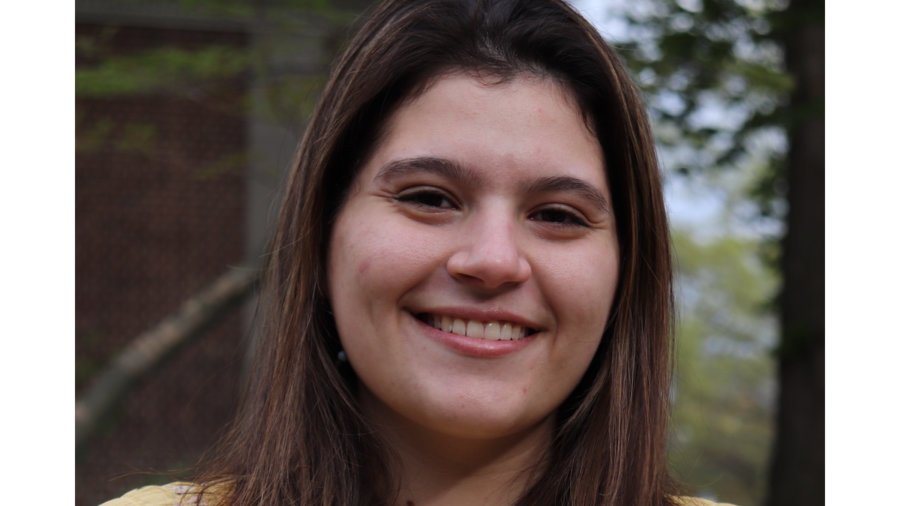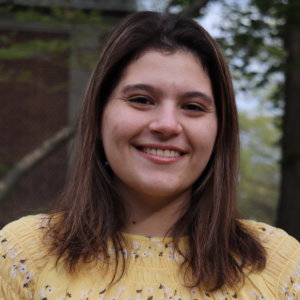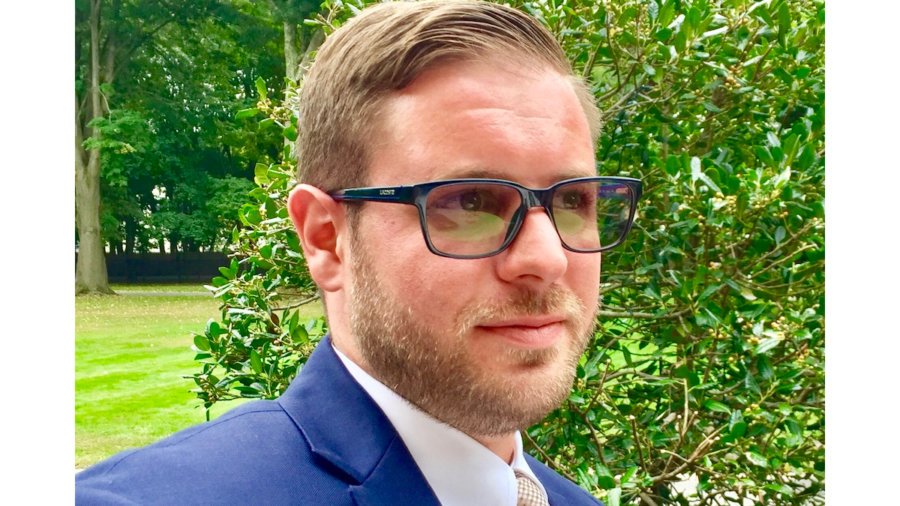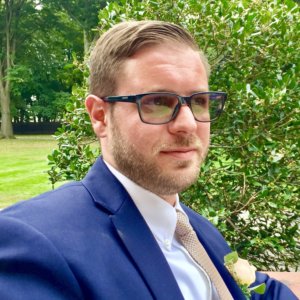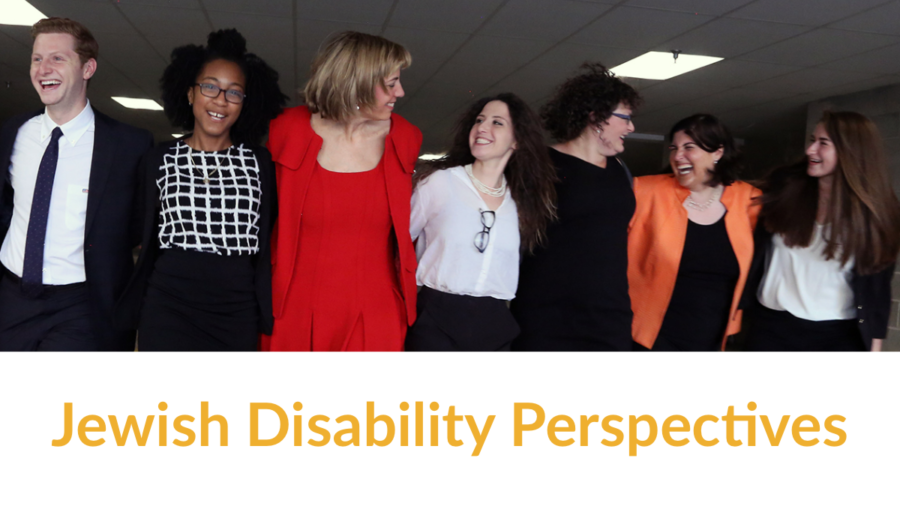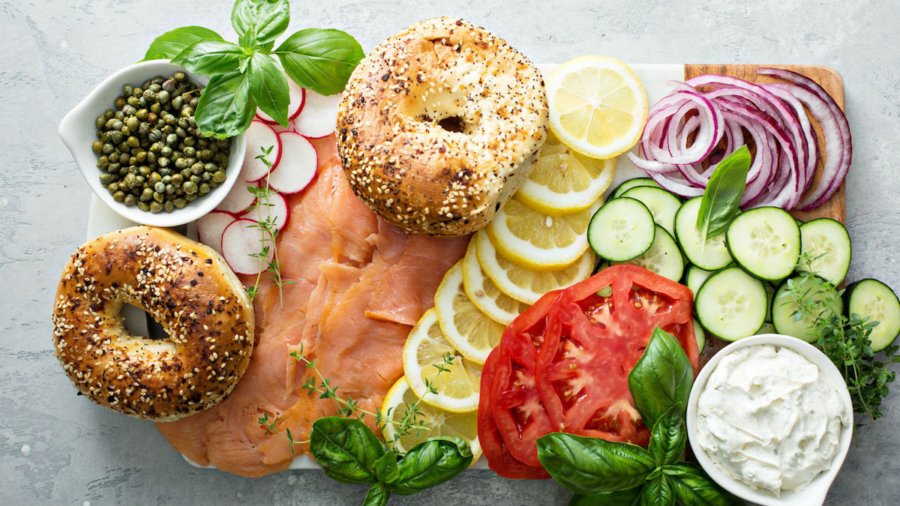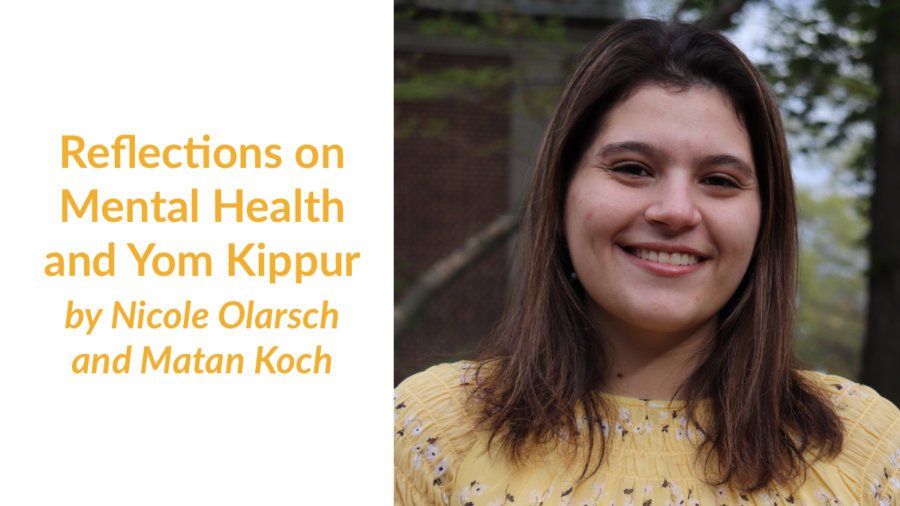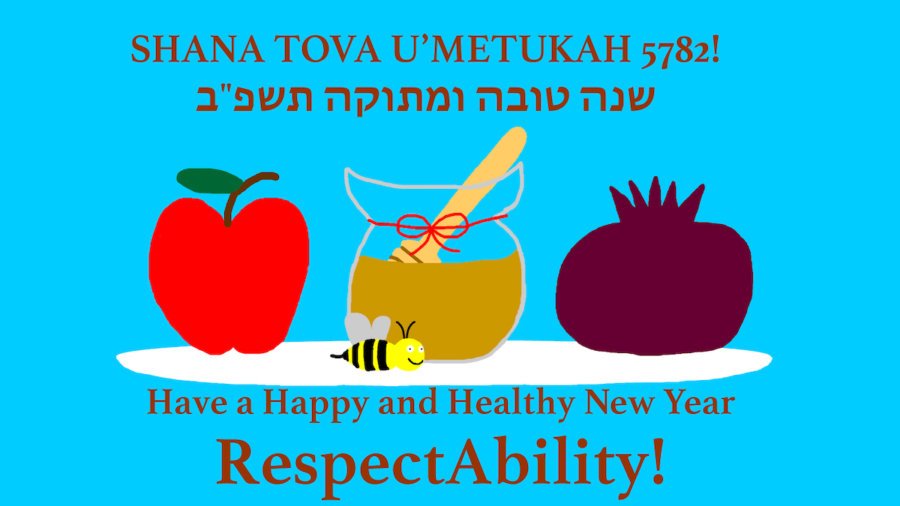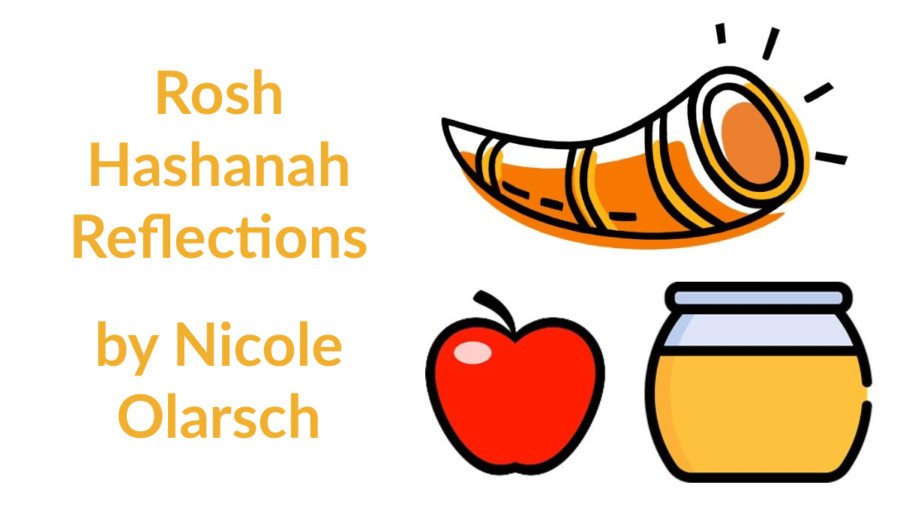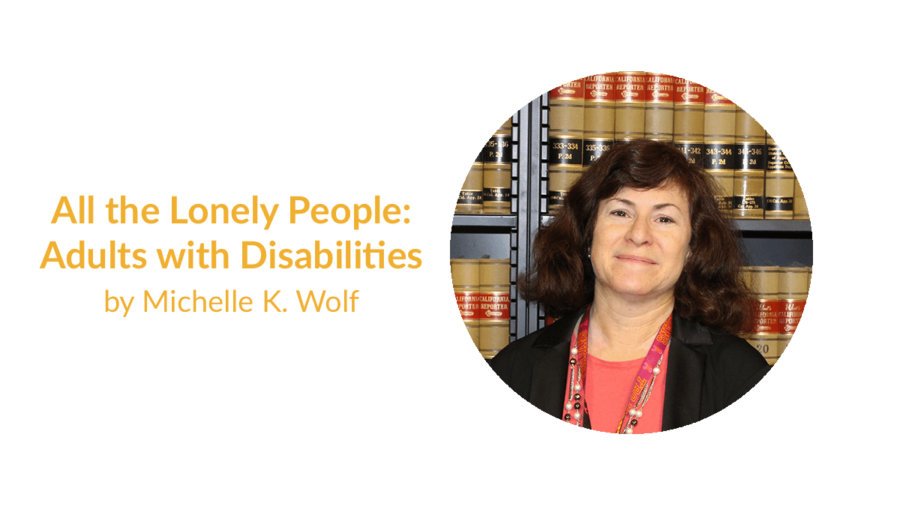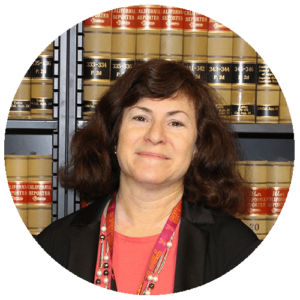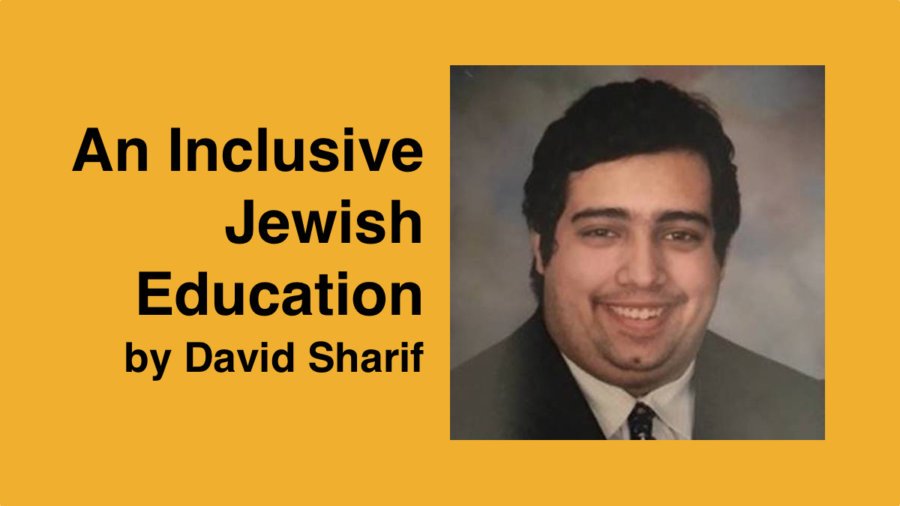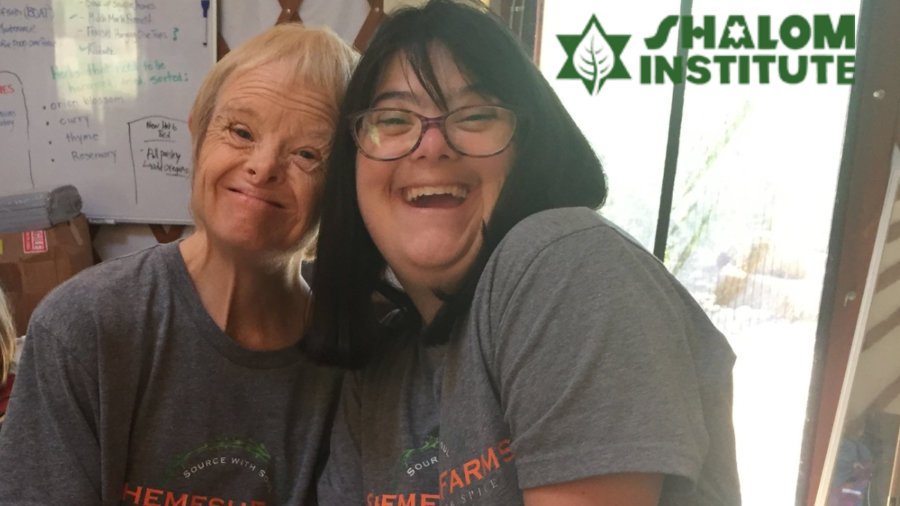I had not been familiar with Sukkot growing up, as my family did not celebrate and we did not live anywhere near a Synagogue. So the first time I experienced Sukkot was during my undergraduate experience at Hillel. Our assistant director at the time had offered me the task of drawing the Etrog and Lulav as decorations for the Sukkah. While a small task, I was delighted to finally be a part of creating a joyous experience for others. Decorating the Sukkah and enjoying many laughs and meals are experiences that I will forever cherish. [continue reading…]
Faith and Spirituality
The Inclusion Imperative That I Find In Sukkot
Some of the fondest memories I have of Judaism growing up are going to the synagogue to help my father and other members of the community build the Sukkah. I got to spend time with my father and my friends while doing it. As I shared last year, with my disabilities, it took me a long time to feel comfortable in my own skin, and my Shul [synagogue] played a major role in helping me to come out of my shell.
Sukkot, the Jewish harvest festival, commemorates the years that the Jews spent wandering the desert, suffering many hardships while building a generation spiritually ready to enter the land of Israel. We celebrate how God protected our people and helped deliver us to the promised land. Sukkah (plural Sukkot) translates roughly to hut, or booth. During Sukkot, we are meant to live in these Sukkahs with roofs made of branches and leaves. We live in these huts, exposed to the world, to remind us that the greatest true security and protection we have comes from God. The holes in the roof also allow us to see up to the heavens. [continue reading…]
JDP for September 10, 2021
I hope that everyone had a lovely Rosh Hashanah, and especially that you were able to find the access that you needed. In fact, if you had an access experience, positive or negative, RespectAbility would love to hear about it. For those still looking for an accessible experience for next week, we have made some additions to our accessible high holiday services list, so please check it out. Also, if you find merit in all of our work, from high holiday accessibility, to resources like the list, to this newsletter, not to mention our amazing work in the world of entertainment and policy to make the world a little bit better place, please consider a visit to our Donate website to make a little New Year’s pledge. [continue reading…]
Reflections on Repentance without Fasting
As we approach Yom Kippur, I’ve been reflecting on the fact that I have never been able to fast due to my varying health conditions. I’ve had to come to terms with the fact that Yom Kippur will never be a “traditional” day of atonement for me, in the sense of fasting, but that doesn’t mean that I haven’t personally come up with ways to engage in self-reflection. I used to feel like I could never atone for my sins, but I still engage in prayer and take moments out of my day to go into a private room and reflect on my actions over the past year. What have I done? How can I improve my actions for this coming year?
A key practice that I’ve found helps my family and friends to include me during these times and ensure that I do not feel guilty for fasting is to acknowledge the fact that “I cannot fast for medical reasons,” and leave it at that. I welcome and encourage questions if people are unsure, but when you look at the grand scheme of things, there isn’t a whole lot that changes for others on Yom Kippur because I cannot fast. It’s important to acknowledge that I am abstaining from a major component of Yom Kippur – fasting. However, just as the Torah commands us to fast to atone for our sins, Judaism and that same Torah also want us to put our wellbeing and safety first. [continue reading…]
Mental Health in the Days of Awe
Every year on Yom Kippur, the most solemn Jewish holiday, “sin” and “repentance” are the key words stuck in my head. But for someone who is already experiencing depression and/or other mental illness, these themes can be extremely upsetting and even harmful to think about. For people like me who live with depression, especially when their thoughts are spiraling negatively, thinking about the things that one has done and how they may have harmed others creates even further self-doubt. It can also lead one down a rabbit hole of negative and anxious thoughts.
I can tell you from experience that finding a good mood is hard for me. That’s what depression does. And when I find myself happy and enjoying the world around me, the last thing I should be doing is reflecting upon minor things that my anxiety can spin into something major. It’s not that I don’t care about my Judaism. In fact, it’s quite the opposite. However, I know I need to prioritize my mental health first. That’s why I sit with my prayers and reflect in bits and pieces on Yom Kippur, as to not let things become irrationally overwhelming. [continue reading…]
JDP for September 3, 2021
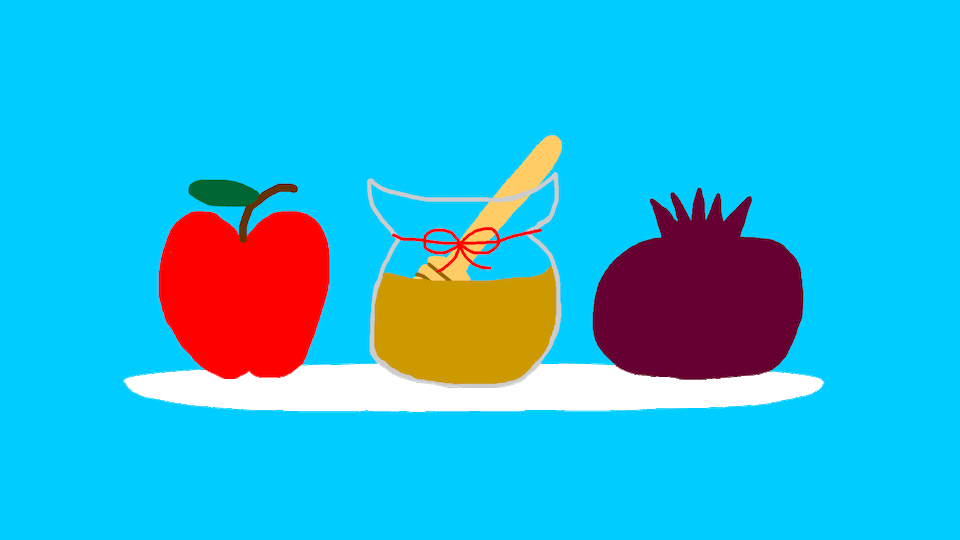 Shabbat shalom and shana tova from RespectAbility! We hope you have a great year ahead and enjoy the animation above, created by former Jewish Inclusion Fellow Ben Rosloff. He is the force behind the disability film series “What Do You Pray For?”
Shabbat shalom and shana tova from RespectAbility! We hope you have a great year ahead and enjoy the animation above, created by former Jewish Inclusion Fellow Ben Rosloff. He is the force behind the disability film series “What Do You Pray For?”
At our website, you can find a list of accessible high holiday services. To congregations that are still making arrangements, it is too late for us to update the list for Rosh Hashanah, but we would be absolutely delighted to add you on for Yom Kippur. I’m also delighted to share two columns that explore how we can take the theme of T’shuvah and apply it to our inclusion practices. You can find the first one here and the second one here. [continue reading…]
Rosh Hashanah Reflections: by Nicole Olarsch
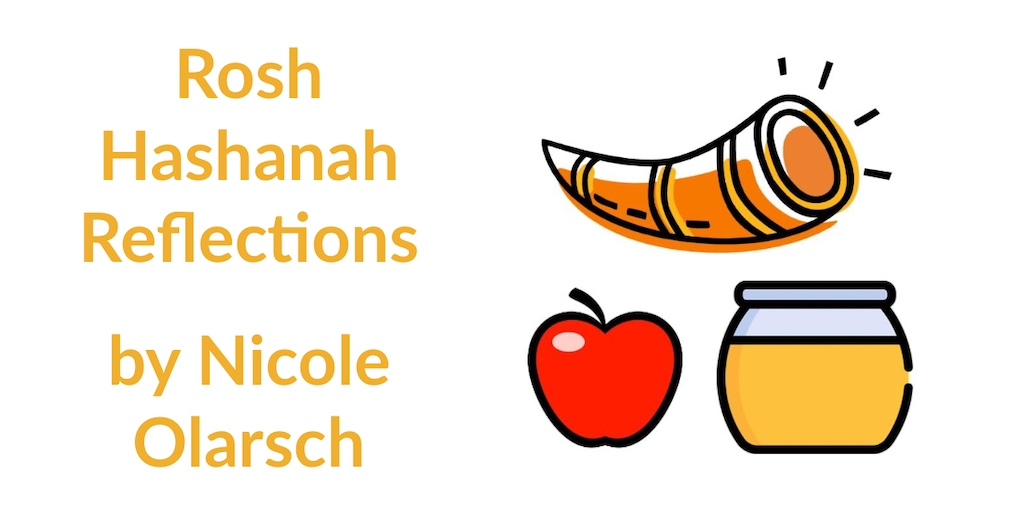 Rosh Hashanah marks a fresh start, and is supposed to be a joyous day! And it is, for the most part, until I’m awkwardly sitting at dinner among my friends and family who are passing challah and engaged in conversations.
Rosh Hashanah marks a fresh start, and is supposed to be a joyous day! And it is, for the most part, until I’m awkwardly sitting at dinner among my friends and family who are passing challah and engaged in conversations.
For probably 6 going on 7 years, I’ve been gluten-free. Before that, I have fond memories of passing the challah and dipping challah and apples into honey with my grandparents. At least for my family, I know that food, cooking and preparing for the holidays have been a major tradition and component of how we have celebrated Judaism and Jewish holidays. Making matzah ball soup with my mom and latkes with my sister are some of our greatest memories. [continue reading…]
All the Lonely People – Adults with Disabilities: by Michelle K. Wolf
In my five years as Executive Director of JLA Trust & Services, a Los Angeles-based nonprofit that helps Jewish and non-Jewish adults with a range of disabilities enjoy a high quality of life with affordable pooled special needs trusts, I have noticed one clear determinant of wellness and happiness for our clients. Is there a family member, close friend or kind neighbor who can provide ongoing support and assistance? In other words, is there anyone in this person’s life who is not being paid to care for this individual?
It is that crucial factor, much more than the primary diagnosis, level and impact of disability or even the amount of money available to them that makes the difference. Government programs cannot be counted on to take the initiative and follow through with individualized help. Support and friendship can come in many packages and forms, from a sibling or aunt who lives close by or far away, a former brother-in-law, or from a long-time friend of the parents. For one of our older clients, his help came from the two adult daughters of his girlfriend, even though that girlfriend had passed away. [continue reading…]
An Inclusive Jewish Education: By David Sharif
Have you encountered an autistic student in your synagogue or religious school classroom? Have you wanted to interact with this student, but were unsure how to? These questions can be answered in many ways, but it requires collaboration between the students, parents, educators, and administration. Acceptance from classmates and the congregation as a whole is essential to creating a nurturing environment. It can be a challenging process, but it is worthwhile because autistic people have valuable contributions to make.
I was diagnosed with autism at the age of four. I could learn to read a word phonetically but struggled to understand the meaning of a sentence. [continue reading…]
Partner Spotlight: Shalom Institute
 Shalom Institute creates an accessible and welcoming community for all backgrounds, abilities and walks-of-life to develop deep relationships and grow physically and emotionally through our overnight camps, year-round retreats, nature education, holiday, and community experiences, all of which are grounded in Jewish values.
Shalom Institute creates an accessible and welcoming community for all backgrounds, abilities and walks-of-life to develop deep relationships and grow physically and emotionally through our overnight camps, year-round retreats, nature education, holiday, and community experiences, all of which are grounded in Jewish values.
We intentionally foster an inclusive community. The two programs for which we are most known for doing this are Camp JCA Shalom overnight camp and Shemesh Farms. [continue reading…]


